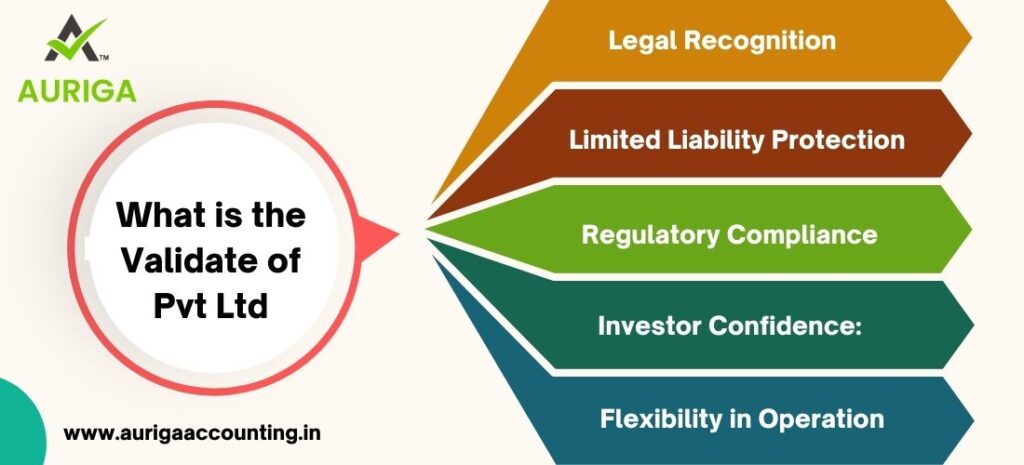
WHO IS ELIGIBLE FOR PRIVATE LIMITED?
Introduction
ToggleWHO IS ELIGIBLE FOR PRIVATE LIMITED?
Eligibility criteria for a private limited company (Pvt. Ltd.) vary by jurisdiction, but generally, individuals, corporations, or other legal entities are eligible to establish such entities. A Pvt. Ltd. company typically requires a minimum of two shareholders and can have a maximum of 200 shareholders. Directors, who may also be shareholders, manage the company’s affairs. Some jurisdictions may mandate the appointment of at least one director who is a resident in the country.
Additionally, the company must adhere to regulatory guidelines, ensuring compliance with local laws and regulations. Financial stability, submission of required documentation, and adherence to corporate governance norms are often key eligibility factors. Pvt. Ltd. structures offer limited liability to shareholders, safeguarding personal assets from business-related liabilities.
It is essential to consult specific business laws and regulations in the relevant jurisdiction for precise eligibility criteria. Legal and financial professionals can provide guidance in navigating the complexities of establishing a Pvt. Ltd. company and ensuring compliance with all applicable requirements. Visitofficialwebsite
What is the requirement of Pvt Ltd
- Minimum number of members: A private limited company must have a minimum of two members or shareholders to be incorporated. The maximum number of members allowed is generally limited to 200.
- Directors: A minimum of 2 directors is required for the incorporation of a private limited company. A maximum Number of 15 directors for incorporation of a private limited company.
- An Indian Resident Director: At least one of these directors must be a resident of India, meaning they have resided in India for a cumulative period of at least 182 days in the previous calendar year.
- Registered Office: company must have a registered office in India from the day of incorporation. This address is where all official communication and notices will be sent.
- Minimum paid-up capital: “In India, recent amendments allow private limited companies to register No minimum paid-up capital requirement. This change aims to facilitate entrepreneurship by reducing financial barriers and encouraging business formation, fostering economic growth and innovation.”
What are the limitation of Pvt Ltd
Private Limited Companies (Pvt Ltd) offer various advantages, such as limited liability, separate legal identity, and ease of transferability of shares. However, they also have certain limitations and restrictions that business owners should be aware of-
- Restrictions on Transfer of Share: Pvt Ltd companies often have restrictions on the transfer of shares, and the consent of existing shareholders or directors may be required before shares can be sold or transferred.
- Limited Capital Raising Option: Pvt Ltd companies may find it challenging to raise capital compared to public companies. They cannot issue shares to the public through a stock exchange, limiting their ability to attract external investments easily.
- Regulatory Compliance: Pvt Ltd companies are subject to various regulatory compliance requirements, including filing annual returns, financial statements, and holding regular meetings. Non-compliance can result in penalties and legal consequences.
- Number of Shareholders: There is a restriction on the number of shareholders in a Pvt Ltd company. Minimum 200 shareholders in a Private Limited company.
- Lack of Public Trading: Unlike publicly traded companies, shares of Pvt Ltd companies cannot be traded on the stock exchange. This lack of liquidity can make it more challenging for shareholders to sell their stakes.
- Limited Exit Option: Exiting a Pvt Ltd company can be complex. The process usually involves selling shares to existing shareholders or finding a buyer who meets the company’s criteria. This can be more restrictive compared to public companies with more straightforward exit options.
- Stringent Corporate Governance: Pvt Ltd companies often have stringent corporate governance requirements, which can be seen as a limitation by some business owners. This includes holding regular board meetings, maintaining proper records, and ensuring transparency in decision-making.
- Restrictions of Public Offering: Pvt Ltd companies cannot issue an Initial Public Offering (IPO) to raise capital from the public. This limitation can impact their ability to access a broader pool of investors and capital.
What are the benefits of Pvt Ltd
A private limited company (Pvt. Ltd.) structure offers several benefits, making it a popular choice for entrepreneurs and businesses:
1. Limited Liability:
· Shareholders in a Pvt. Ltd. company enjoy limited liability, meaning their personal assets are protected from business debts and liabilities. This separation helps shield personal wealth in the event of financial challenges or legal issues.
2. Ease of Ownership Transfer:
· Ownership in a Pvt. Ltd. company can be easily transferred through the sale or transfer of shares. This facilitates the exit or entry of shareholders without disrupting the company’s operations.
3. Perpetual Existence:
· A Pvt. Ltd. company has a perpetual existence, independent of changes in its ownership. The death, withdrawal, or addition of shareholders does not impact the continuity of the business, providing stability and longevity.
4. Credibility and Trust:
· The “Pvt. Ltd.” designation often instills confidence and credibility in business dealings. It can enhance the trust of customers, suppliers, and financial institutions, contributing to the company’s reputation.
5. Access to Capital:
· Pvt. Ltd. companies can raise capital by issuing shares to investors. This facilitates fundraising for business expansion, investment in new ventures, or meeting operational expenses without relying solely on debt financing.
6. Tax Benefits:
· Pvt. Ltd. companies may be eligible for various tax benefits and incentives offered by the government. These could include deductions, exemptions, or lower tax rates, enhancing the company’s financial efficiency.
7. Flexible Management Structure:
· Pvt. Ltd. companies have flexibility in designing their management structure. They can appoint directors, who may also be shareholders, to oversee day-to-day operations, providing efficient and focused decision-making.
8. Privacy and Confidentiality:
· Pvt. Ltd. companies generally offer a greater degree of privacy compared to public companies. Financial information, business strategies, and other sensitive details can be kept confidential, as Pvt. Ltd. companies are not required to disclose as much information publicly.
9. Employee Benefits:
· Pvt. Ltd. companies often find it easier to attract and retain talented employees by offering shares or stock options as part of employee benefit packages. This can align the interests of employees with the overall success of the company.
10. Regulatory Compliance:
· While there are regulatory requirements for Pvt. Ltd. companies, they are typically less stringent compared to those for public companies. This can reduce the administrative burden and costs associated with compliance.
In summary, the Pvt. Ltd. company structure provides a balance of limited liability, operational flexibility, and financial advantages, making it an attractive choice for businesses seeking to combine the benefits of corporate structure with manageable regulatory obligations.
What is the minimum turnover of Pvt Ltd
Certainly! Here are key points regarding the minimum turnover for a private limited company (Pvt Ltd):
No Standard Minimum Turnover: There is typically no specific minimum turnover requirement for Pvt Ltd companies in many jurisdictions, including India, the United Kingdom, and the United States.
Varies by Jurisdiction: Turnover requirements, if any, may vary depending on the jurisdiction and the specific regulations governing companies in that region.
Purpose-Specific Requirements: Some jurisdictions may have turnover thresholds for specific purposes, such as eligibility for tax incentives, regulatory compliance, or participation in government contracts or programs.
Consider Other Factors: The decision to form a Pvt Ltd company is often based on factors such as liability protection, tax considerations, governance structure, and growth potential, rather than turnover alone.
Suitable for Various Business Sizes: Pvt Ltd companies are suitable for businesses of varying sizes, from startups and small enterprises to larger corporations.
Consult Legal or Financial Advisors: For specific information about turnover requirements for Pvt Ltd companies in a particular jurisdiction, it’s advisable to consult with legal or financial advisors familiar with the regulations applicable to businesses in that region.
In summary, while there is typically no standard minimum turnover requirement for Pvt Ltd companies, businesses should consider various factors and consult with professionals to ensure compliance with applicable regulations and make informed decisions regarding their company structure.
Can a single person own a Pvt Ltd
Yes, a single person can own a Private Limited Company (Pvt Ltd) in many jurisdictions, subject to the laws and regulations of the respective country. In several countries, including India and the United Kingdom, a single individual can establish and own a Pvt Ltd company, functioning as the sole shareholder and director.
Here are some key points regarding a single person owning a Pvt Ltd:
Sole Proprietorship: In some jurisdictions, a single person Pvt Ltd company may function similarly to a sole proprietorship, where one individual owns and operates the business.
Limited Liability: One of the primary advantages of forming a Pvt Ltd company, even with a single owner, is the limited liability protection it provides. This means that the owner’s personal assets are generally protected from business liabilities.
Corporate Structure: Despite being owned by a single person, a Pvt Ltd company still follows a corporate structure, with formalities such as the appointment of a director, adherence to company law, and filing annual returns.
Legal Compliance: Single-person Pvt Ltd companies are required to comply with all legal and regulatory requirements applicable to Pvt Ltd companies, including registration, taxation, and reporting obligations.
Separate Legal Entity: Pvt Ltd companies, whether owned by one person or multiple individuals, are considered separate legal entities from their owners. This provides legal recognition and allows the company to enter into contracts, own assets, and engage in business activities in its own name.
Flexibility: Pvt Ltd companies offer flexibility in ownership and management structures, allowing single owners to establish and operate businesses with limited liability.
It’s important for individuals considering establishing a single-person Pvt Ltd company to consult with legal and financial advisors familiar with the regulations and requirements in their jurisdiction. They can provide guidance on the process of company formation, compliance obligations, and other considerations relevant to the specific circumstances of the business.
What are to 2 advantages of Pvt Ltd
Private Limited Companies (Pvt Ltd) offer several advantages that make them a popular choice for entrepreneurs and business owners. Here are two key advantages:
- Limited Liability:
- One of the primary advantages of a Pvt Ltd company is the concept of limited liability. Shareholders of a Pvt Ltd company have their liability limited to the amount invested in the company. This means that in the event of financial difficulties, the personal assets of the shareholders are protected, and they are not personally responsible for the company’s debts. Limited liability provides a significant level of financial security for business owners, making it an attractive structure for those looking to mitigate personal risk.
- Separate Legal Entity:
- A Pvt Ltd company is considered a separate legal entity from its shareholders and directors. This separation means that the company can own property, enter into contracts, and sue or be sued in its own name. The distinct legal identity provides a level of stability and continuity for the business, as the company’s existence is not dependent on changes in ownership or the departure of key individuals. This separation also allows for the smooth transfer of ownership through the buying and selling of shares without disrupting the company’s operations.
- Ease of Transferability of Share:
- Pvt Ltd companies often provide a mechanism for the transfer of shares, offering liquidity to shareholders. While there may be restrictions on the transfer of shares, such as obtaining the consent of existing shareholders, the process is generally more straightforward compared to partnerships or sole proprietorships. This feature can be attractive to investors or business partners who want the flexibility to buy or sell shares, contributing to the overall appeal of Pvt Ltd companies for those seeking an exit strategy or investment opportunity.
- Attractiveness to Investor:
- Pvt Ltd companies are often more attractive to potential investors compared to sole proprietorships or partnerships. The limited liability structure and the ability to issue shares make it easier for investors to participate in the business without exposing themselves to unlimited personal liability. This can facilitate the infusion of external capital, helping the company to grow and expand its operations.
- Flexible Management Structure:
- Pvt Ltd companies offer flexibility in their management structure. While there is typically a minimum requirement for the number of directors, the company can have a board of directors and appoint officers for day-to-day management. This flexibility allows business owners to structure the management team according to the specific needs and skills required for the business’s success.
Overall, the limited liability, separate legal entity status, ease of share transferability, attractiveness to investors, and flexible management structure make Pvt Ltd companies an advantageous business structure for many entrepreneurs. These benefits contribute to their popularity in various industries and sectors.

What is the Validate of Pvt Ltd
Private Limited Companies are recognized legal entities that are incorporated under the laws of a particular jurisdiction. Their validity and legitimacy are grounded in the legal framework that governs the formation and operation of such entities. Here are some aspects highlighting the validity and significance of Pvt Ltd companies
- Legal Recognition
- Pvt Ltd companies are legally recognized business structures. They have a distinct legal identity that is separate from their owners or shareholders. This recognition ensures that the company can enter into contracts, own assets, and sue or be sued in its own name.
- Limited Liability Protection:
- One of the key reasons businesses opt for Pvt Ltd status is the concept of limited liability. The validity of this protection lies in the assurance that the personal assets of shareholders are shielded from the company’s liabilities. In the event of financial difficulties or legal issues, shareholders are generally only liable for the amount invested in the company.
- Regulatory Compliance:
- Pvt Ltd companies must comply with regulatory requirements, including registration, filing of annual returns, and adherence to corporate governance norms. The validity of a Pvt Ltd company’s status depends on its continuous compliance with these legal obligations.
- Investor Confidence:
- The Pvt Ltd structure often instills confidence in investors. The validity of this confidence comes from the established legal framework that governs Pvt Ltd companies, offering investors a level of assurance regarding corporate governance, transparency, and limited liability.
- Flexibility in Operation:
- Pvt Ltd companies have flexibility in their operations and management structure, allowing for efficient decision-making and adaptability to changing business environments. This flexibility adds to the overall validity and relevance of the Pvt Ltd model.
In summary, the validity of Pvt Ltd companies lies in their legal recognition, limited liability protection, regulatory compliance, and the various advantages they offer to businesses and stakeholders. These features contribute to their widespread use and popularity in many jurisdictions.
How auriga accounting help you to define eligibility for private limited
Auriga Accounting can assist in defining eligibility for Private Limited Company (Pvt Ltd) incorporation through several means. Here are 15 ways Auriga Accounting can help determine eligibility:
Legal Consultation: Auriga Accounting can provide legal consultation to understand the eligibility criteria for Pvt Ltd company formation in the relevant jurisdiction.
Business Structure Assessment: They can assess your business requirements and objectives to determine if a Pvt Ltd structure is suitable for your needs.
Legal Compliance Check: Auriga Accounting can conduct a comprehensive check to ensure that your business meets all legal requirements and eligibility criteria for Pvt Ltd registration.
Financial Review: They can review your financial situation to determine if your business meets any financial eligibility requirements for Pvt Ltd incorporation.
Ownership Structure Analysis: Auriga Accounting can analyze the ownership structure of your business to ensure it aligns with the eligibility criteria for Pvt Ltd formation, including the minimum number of shareholders.
Directorship Assessment: They can assess the eligibility of proposed directors to ensure they meet the necessary criteria set forth by company law.
Share Capital Evaluation: Auriga Accounting can help determine the appropriate share capital structure for your Pvt Ltd company, ensuring compliance with regulatory requirements.
Documentation Review: They can review all necessary documentation, such as memorandum and articles of association, to ensure they meet the requirements for Pvt Ltd incorporation.
Regulatory Compliance: Auriga Accounting can guide you through the various regulatory requirements for Pvt Ltd companies, ensuring that your business meets all necessary eligibility criteria.
Tax Implications: They can assess the tax implications of Pvt Ltd formation to ensure your business is eligible and prepared for any tax obligations associated with this structure.
Risk Analysis: Auriga Accounting can conduct a risk analysis to assess potential liabilities and risks associated with Pvt Ltd incorporation, ensuring you understand the implications before proceeding.
Due Diligence: They can perform due diligence checks to verify the eligibility of shareholders, directors, and other stakeholders involved in Pvt Ltd formation.
Legal Documentation Preparation: Auriga Accounting can assist in preparing all necessary legal documentation required for Pvt Ltd incorporation, ensuring compliance with regulatory standards.
Submission and Filing: They can handle the submission and filing of all necessary documents with the relevant authorities for Pvt Ltd registration, ensuring a smooth process.
Ongoing Support: Auriga Accounting can provide ongoing support and guidance to ensure that your Pvt Ltd company remains compliant with all legal and regulatory requirements post-incorporation.
Through these services, Auriga Accounting can effectively help you define eligibility for Pvt Ltd incorporation and navigate the process with confidence.












